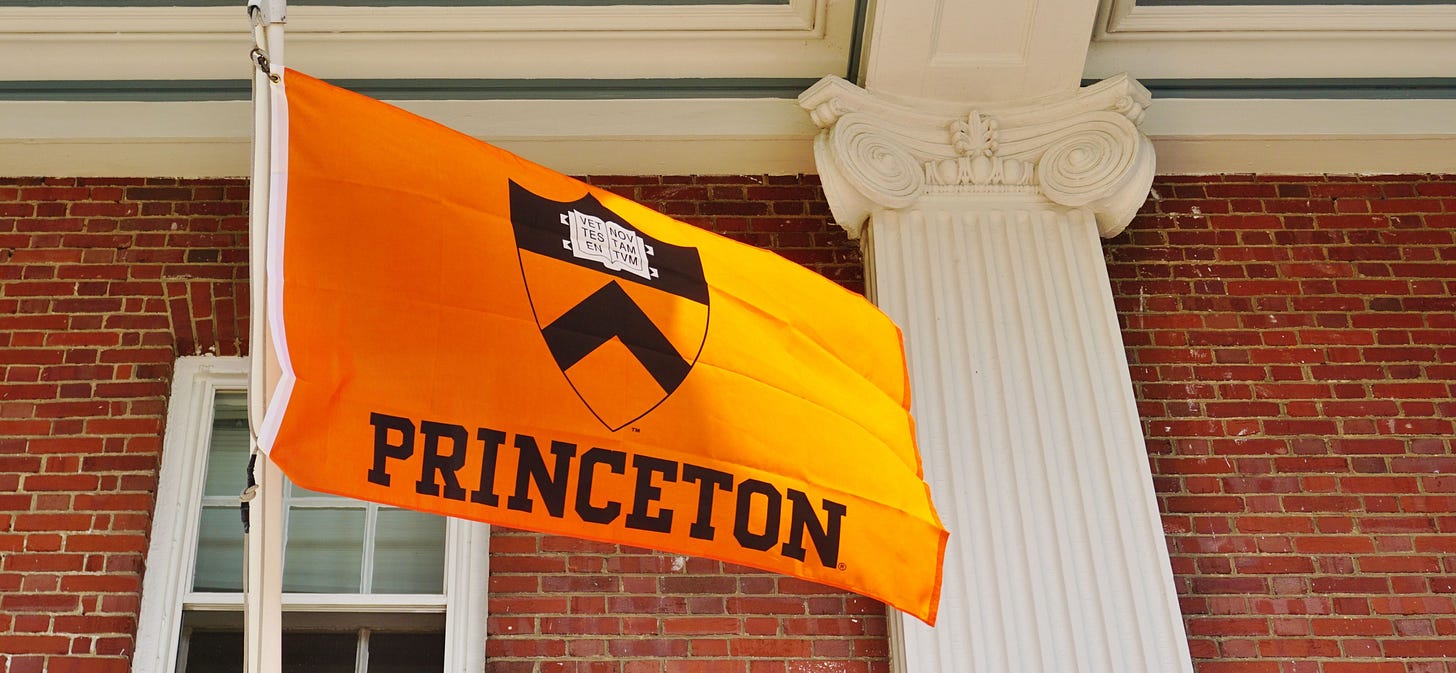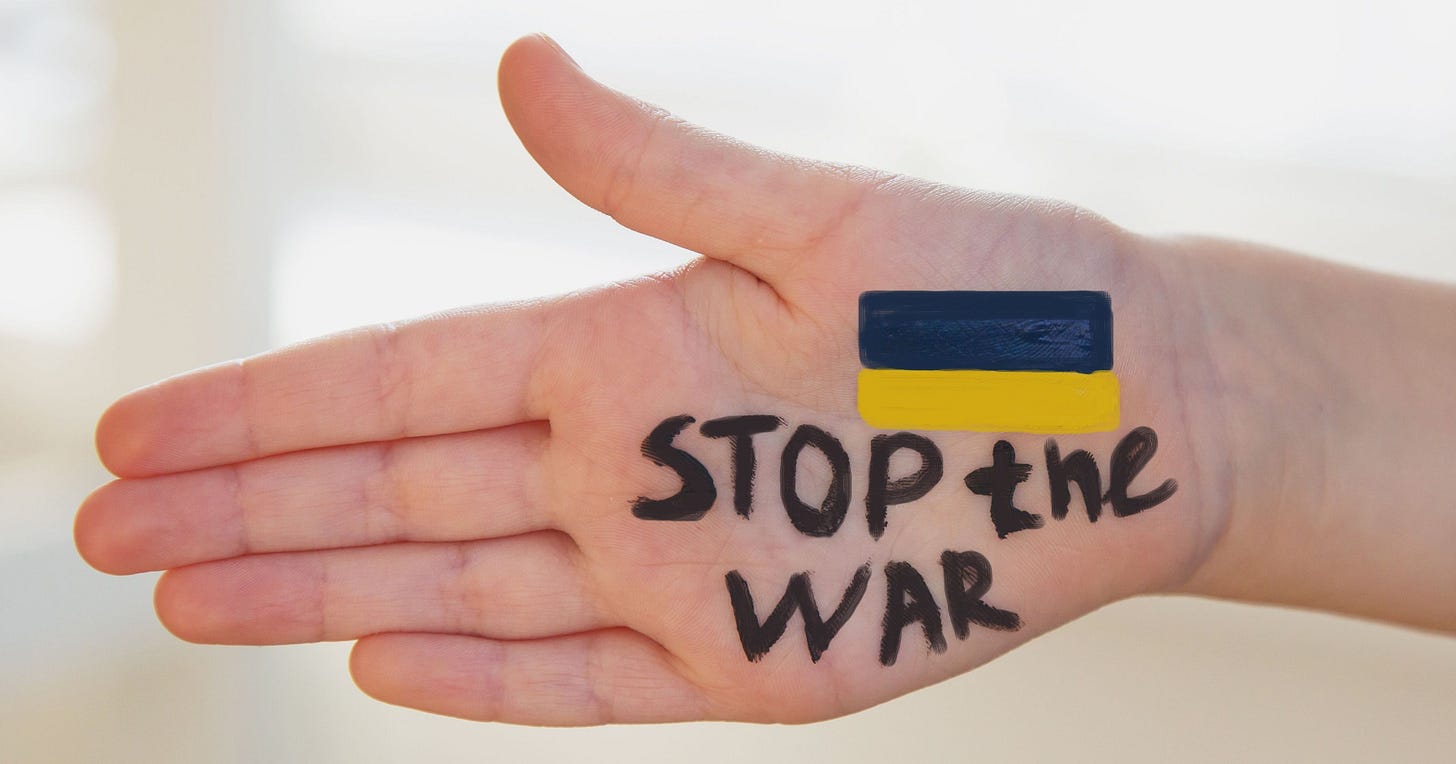E-Pluribus | March 7, 2023
Achieving the campus diversity that really matters; a student weighs in; and the anti-war right.
A round-up of the latest and best writing and musings on the rise of illiberalism in the public discourse:
Ramesh Ponnuru: How to restore intellectual diversity on college campuses
The D in DEI stands for diversity, but not the kind of diversity that is most important. In the Washington Post, Ramesh Ponnuru says universities (and the state officials and office holders responsible for them) must institute programs and policies that restore ideological balance in ways that are consistent with free expression and can withstand judicial scrutiny.
The lack of right-of-center professors undermines higher education. It means that some conservative perspectives go unexplored and conservative arguments unexamined. It stifles debate, since even professors and students with reservations about campus orthodoxies will hesitate to voice them if they think they’re alone. And it perpetuates itself by creating a climate that discourages bright young conservatives from becoming academics themselves.
It’s also unsustainable. Conservative voters are not going to consent forever to sending tax dollars to support institutions at odds with their values. They are losing confidence in higher education’s benefits for the country. And, in the past few years, Republican states have increasingly been legislating against left-wing indoctrination in colleges. The most prominent example: Florida Gov. Ron DeSantis signed a bill that, among other things, prohibits state college instructors from teaching that any person should bear guilt for past injustices committed by other people of the same race.
DeSantis next wants legislators to deny funding to state colleges’ “diversity, equity and inclusion” initiatives. The Foundation for Individual Rights in Education (FIRE), a nonpartisan group, says that “DEI administrators have been responsible for repeated campus rights abuses.” The group is urging legislatures to bar state colleges from using pro-DEI statements as a litmus test for hiring or promotion — a common practice.
States ought to give serious consideration to the FIRE proposal. But conservatives and others concerned about a progressive stranglehold on the academy should not place all their hopes in bans and regulations. Such legislation will be challenged in court — and sometimes should be, based on the risk of chilling free inquiry. And, in any case, there’s no way to regulate an overwhelmingly left-wing professoriate into making a fair presentation of conservative ideas.
Read the whole thing.
Adam S. Hoffman: My Liberal Campus Is Pushing Freethinkers to the Right
Last May, the New York Times created a stir by publishing an essay by Emma Camp (then a senior at the University of Virginia, and now a staffer at Reason magazine) about the pressures that create self-censorship on left-leaning campuses. Now the Times has given Princeton student Adam Hoffman a similar opportunity to write about how the same pressures actually push students towards the right.
[T]hose who challenge liberal pieties can face real repercussions. Because a Princeton student defended an unpopular opinion about policing in a private conversation, she was pushed out of her leadership position on a sports team. At Stanford, students who experience “harm” because of “who they are and how they show up in the world” can anonymously report classmates to the university, a policy that some faculty members say threatens free speech.
Sometimes young conservative agitators are dismissed, cynically, as attention seekers or opportunists. But in my experience, the negative consequences of conservative activism on campus, both personal and professional, far outweigh any benefit that they might incur. And, tellingly, most conservatives report censoring themselves during their college years.
Some might think that this pervasive progressivism would encourage conservative students to change their views. But in fact it has the opposite effect. Graduates of schools like Loyola University Chicago, George Washington University and Mount Holyoke have described how the rampant leftism on their campuses pushed them to the right. A 2017 article in The Washington Examiner quotes a Furman University graduate saying that “the aggressive leftist culture on campus made me a more radical conservative because I only had two options: abandon my beliefs and conform, or fight back.” She chose to fight back.
Read it all here.
Isaac Grafstein: The Rise of the Right-Wing Peacenik
The 1960s and 70s (and probably every decade since) were filled with anti-war protests over US involvement in conflicts and wars around the world. While most of that pushback came from the left, Isaac Grafstein writes for the Free Press that these days, there’s a growing anti-war movement on the right.
Increasingly, the anti-war right views this debate as an either/or proposition: either Washington stops intervening in foreign conflicts and repairs our infrastructure, forces manufacturers not to off-shore jobs, breaks up Big Tech, ends progressive dominance of the social media algorithm, and restores sanity to our politics and culture. Or it keeps wasting blood and treasure overseas, and America continues down its path of decline.
No one summed up this choice better than Republican Senator Josh Hawley of Missouri when he said last week: “I would just say to Republicans, ‘You can either be the party of Ukraine and the globalists, or you can be the party of East Palestine and the working people of this country.’ ”
[ . . . ]
One of the most important things fueling Republicans’ anti-war sentiment, in this especially tribalistic moment, is the fact that Democrats have become strangely pro-war. When the Congressional Progressive Caucus sent a letter to the White House in October calling on the president to use all diplomatic means to end the war in Ukraine, fellow Democrats were outraged, and Democratic Rep. Pramila Jayapal, who chairs the caucus, withdrew it.
The point is that, in a country in which everything is red or blue, Republicans tend to see support for Ukraine (rightly or wrongly) as the latest in a growing list of things that progressives put in their bios. First it was pronouns. Now it’s the Ukrainian flag. Add to that the fact that the federal government and the press spent Trump’s entire term pursuing Russiagate and had little to show for it.
Read it all.
Around Twitter
Musician and author Zuby comments on the inconsistencies in woke labeling:
David French with some excerpts from his New York Times essay on Marjorie Taylor Greene’s repeated calls for a “national divorce.”
And finally, you have to give Bernie Sanders credit for not trying to bluff his way through this:










